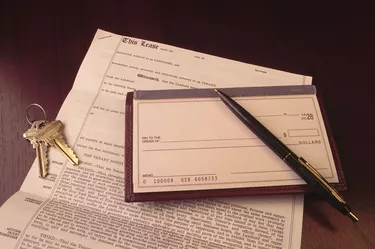
A guarantor is a person or entity that agrees to repay a loan or debt if the original borrower is unable to do so. Unlike a co-borrower, a guarantor is only liable for a debt if the borrower defaults on the loan. Typically, a guarantor is not released of his or her legal obligation to repay the loan until the loan has been paid in full.
Benefits
Video of the Day
Some businesses and individuals are unable to secure loans without a guarantor, possibly because of a lack of credit or assets or because of an existing debt load. Guarantors provide borrowers with the opportunity to secure a loan and make investments in their homes, education, businesses and/or personal lives.
Video of the Day
Disadvantages
If a borrower defaults on the loan, the guarantor is responsible for paying the loan in full. This payment may be due immediately. In many cases, a guarantor may not be removed from his loan obligations until the loan has been completely paid or the loan is refinanced in only the borrower's name.
Considerations
A person or company should only agree to guarantee a loan if she feels she is capable of repaying the loan in full. Guarantors must also go through a loan application process, so borrowers should choose guarantors who are financially stable to ensure the loan application is approved.